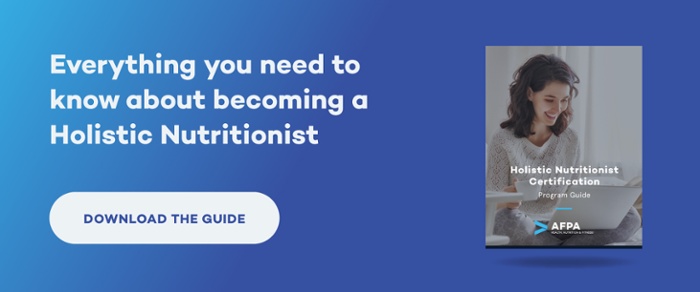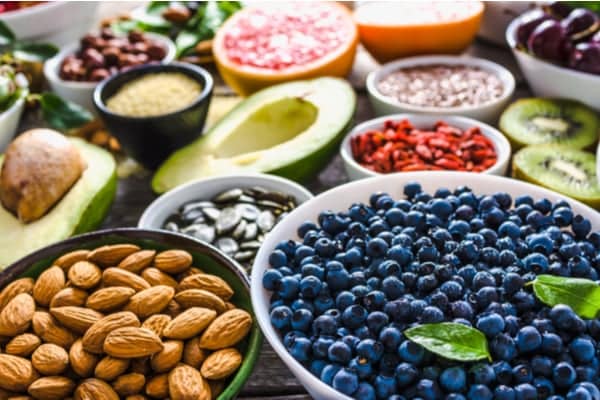Diet and lifestyle are related to 80% of our diseases, therefore nutrition may help in the prevention and treatment of allergies. A strong immune system and digestive health are crucial. How we breathe, the pace we keep, the way we eat, how we rest,
what we believe…all part and parcel upon our state of health. Shifting our dietary approach is a prime place to begin strengthening our state of health. An abundance of over-processed, nutrient void, enzyme deficient, chemical laden foods, typically eaten in excess and consumed too fast are at the heart of most health matters. Even if the dietary approach is infused with healthful, living foods, a stress lifestyle or excess consumption of any one food can cause nutrition related disease. Too much of anything is not good and the repercussions of this excess often result in food allergies and intolerances. There is much confusion and misunderstanding with food allergy and intolerance
Let’s clarify the difference:
Allergies and Food Intolerances – Even though they may cause the same symptoms, there is a major difference between the two. Food allergy is an immune system response and tends to produce acute symptoms; Food intolerance is caused by the lack of enzymes needed to digest food, which often leads to chronic illness.
Food allergy occurs when the immune system reacts to a food by creating IgE antibodies. When the same food is again eaten, these antibodies signal the immune system to release massive amounts of chemicals, including histamine, which trigger a cascade of allergic symptoms including asthma, skin rashes, mood swings, headaches and heart palpitations. These acute symptoms generally occur minutes after ingestion of the food.
Symptoms of food intolerance can occur hours to days after ingesting the food and are termed “delayed reactions.” Food intolerance is linked to ineffective digestion and lack of enzymes. For example, a person with lactose (milk sugar) intolerance lacks an enzyme (lactase) that is needed to digest the milk sugar. When the person eats milk products, symptoms occur such as gas, bloating, abdominal cramps and pain. Since these symptoms often occur hours to days later, they can be difficult to link to the particular food.
A true food allergy differs from food sensitivity or intolerance. When a patient develops hives or anaphylactic shock after exposure to a certain substance, this is a true allergy. It involves the immune system and can be life threatening.
- To Understand an allergy – It occurs when the body reacts to an otherwise innocuous substance (allergen) as though it were a foreign invader, such as a bacterium or virus. When the substance is an ordinary food or beverage, however, it is a case of mistaken identity.
If it were a bug, the immune system can usually fight off the invader in a few days. Where there is a reaction to something that is frequently eaten (or to something unavoidable in the environment), the immune system is constantly being triggered into reacting. This exhausts the immune system and depletes the body of the nutrients that it needs to function properly. When a real bug comes along, the depleted body just doesn’t have what it needs to fight back. One of the long term effects of allergies is a depleted immune system, and therefore frequent colds, flus or other infections.
“Allergic shiners” are dark semi-circles under the eyes, looking like “raccoon eyes” or a pair of glasses. They are a good indication that someone probably has food allergies.
While it is known that an individual can be allergic or intolerant to any food, the following eight foods account for 90 percent of all food-allergic reactions: Milk, eggs, peanuts, tree nuts such as walnut and cashew, fish, shellfish, soy and wheat.
Food sensitivity or intolerance is a general term covering all negative reactions to foodstuffs including those caused by enzyme deficiencies, interactions with drugs and medicines and chemical irritations such as chili pepper. This is a more common problem and characterized by nasal congestion, gas, heartburn, bloating, abdominal pain, constipation or diarrhea–even distant symptoms such as a migraine or leg pains. The immune system is not involved and the risk to the patient from exposure is not great. However, the symptoms can be quite debilitating.
Homeopathy views food sensitivities (and allergies, too) as an expression of a disturbance in the patients energetic system. This system keeps all the tissues and organs as well as the emotions and intellectual apparatus functioning at optimum level. Under stress, the energetic system will cause certain symptoms, such as food intolerances or allergies, to appear. These symptoms are not a disease to be cured in themselves, but a reflection of an underlying, deeper malfunction.
With food allergies, many medical authorities believe that there is no cure because, according to the Food Allergy and Anaphylaxis Network, there are currently no medications that cure food allergies.
The fact is there is much that can be done. A diet that is free of offending foods, together with natural nutritional supplements, enzymes, herbal formulas and homeopathic remedies, can be very beneficial to people with both food allergies and intolerances. Normalizing the digestive function and healing a damaged intestinal lining will go a long way to eliminate adverse food reactions as will strengthening the immune system.
Enzymes Can Help
Nutritional plant enzyme therapy has emerged as a major healing force for many chronic conditions, including food allergy.
In fact, one study found that with the administration of enzymes, bronchial asthma was 88 per cent improved, asthma induced by food was 92 percent improved and eczema from food was 83 percent improved.
One function of supplemental plant enzymes is to help ensure the proper digestion of food. Interestingly, an early sign of enzyme deficiency is often disturbed digestion. When food is not properly digested, the food particles cannot be efficiently absorbed to be used as nutrients. Instead, the body recognizes these abnormal food particles as foreign invaders, which activates the immune system and can result in allergic reactions and inflammation. Nutritional enzyme therapy is especially effective at fighting allergies because the enzymes break down the protein allergens, thereby decreasing allergic reactions and the release of inflammatory products such as histamine from the cells.
Nutritional plant enzyme supplementation can serve as replacement for the body’s own pancreatic enzymes, which are often in short supply when a person suffers from food allergy and intolerance. Consequently, this leaves the pancreatic enzymes free to perform other functions in the body such as boosting immunity.

Get Your Free Guide to Becoming a Holistic Nutritionist
Learn about the important role of holistic nutritionists, what it takes to be successful as one, and how to build a lucrative, impactful career in nutrition.
Many common foods have potent immunity-boosting properties when consumed regularly in sufficient quantities, Including the following:
Cruciferous vegetables The members of this family of vegetable, including broccoli, cauliflower, cabbage, Brussels sprouts, and turnips, are rich in beta carotene and protect mucous membranes, especially in the lungs and intestinal tract, from cancer and free-radical damage.
Garlic Garlic is probably the foremost immune-enchanting food on Mother Nature’s menu. It has a wider spectrum of antibiotic activity than penicillin, inhibits many viruses and helps prevent cancer. It is most effective when consumed raw.
Raw fish Deep-water fish such as salmon and tuna are rice sources of omega-3 fish oils, which contain the essential fatty acids required to produce immune factors such as white blood cells in the body. These elements are most abundant and easy to assimilate when the fish is consumed raw, if you prefer it cooked, then lightly steam or poach it.
Seaweed’s Seaweed’s are known to lower blood cholesterol, neutralize radiation toxicity and enhance overall immunity.
Raw almonds Raw almonds are one of the best natural sources of essential amino acids and essential fatty acids, both of which are required for optimum immunity.
Bee pollen Another good source of essential fatty acids, be pollen is also loaded with enzymes and other potent nutritional elements which boost immunity. Pollen also helps eliminate many food allergies.
Supplements: Because of environmental pollution and denatured diets, food alone is no longer sufficient to sustain optimum immunity today. Without supplements, the body simply does not get the full range and quantity of vital nutrients and other elements it requires to maintain health and vitality, regardless how much food you eat. Judicious use of the following supplements will supply the elements the body needs most to fight disease, neutralize toxins and free radicals and guard against premature degeneration of bodily tissues.
Vitamins Many vitamins function not only as nutrients, but also as potent antioxidants. When the body is dis-eased or di-stressed, it utilizes vitamins at a far greater rate than under normal conditions, a fact that shows how important these nutrients are to immune functions. Most important is vitamin C, which helps prevent cancer, counteracts the immunosuppresive effects of cortisone, protects the heart and boosts overall immunity. The optimum maintenance dose is 2-6 grams per day and double that amount when ill. Other immunity-boosting vitamins include, in order of potency, vitamins A (preferably as beta carotene), vitamin E and vitamin B1, B5, B6, and B12.
Minerals The minerals selenium and zinc are indispensable to the human immune system, because they are required to manufacture antioxidant enzymes, which protect the body from free-radical damage. Zinc, for example, is used to synthesize eighty different enzymes, including the body’s most potent anti-aging enzyme, superoxide dismutase.
Other minerals essential for immune function include magnesium, potassium, manganese, sodium, copper and chromium.
Amino acids Argine, when taken with synergistic cofactors such as vitamin B, stimulates the pituitary to secrete growth hormone, a vital immune regulator. Argine also enlarges the thymus gland (which produced T-cells), greatly enhances the body’s healing powers and helps prevent cancer. Other immune-boosting amino acids include ornithine, cysteine, taurine, methionine and glutathione.
Essential fatty acids These nutrients, including omega-3 fish oils, oleic acid and caprylic acid, provide the best protection against arteriosclerosis and other forms of heart disease. Since few Americans get adequate levels of these essential nutrients from their food (as clearly evidenced by the fact that heart disease now accounts for 53 per cent of all deaths in the USA), supplemental sources are required. Fatty acids are also essential elements in white blood cells, antibodies and brain cells.
Enzymes Since modern diets consist primarily of cooked and processed foods, the body must divert much of its enzyme power to the stomach and duodenum for digestive duty, thereby sharply reducing the availability of enzymes for antioxidant activity and other immune functions. When taken on an empty stomach, enzyme supplements go to work digesting microbes, pre-cancerous cells, toxins, pus, mucus and other disease causing agents.
Lacto bacteria Supplemental sources of lacto bacteria such as acidophilus, bifidus and fermented cabbage juice replenish the colonies of “friendly” bacteria in the intestinal tract. Lacto bacteria are the body’s only natural defense against candida and other yeast infections, which have powerful immune-suppressive properties. They also facilitate rapid elimination of toxic digestive wastes and improve assimilation of essential nutrients from food.
Author: Teri Gentes
References:
Dr Malthouse -Current President of the Canadian Complementary Medical Association
The Tao of Health, Sex and Longevity
Daniel Reid
Alive Encyclopedia of Natural Healing; Prescription for Nutritional Healing, by James and Phyllis Balch




